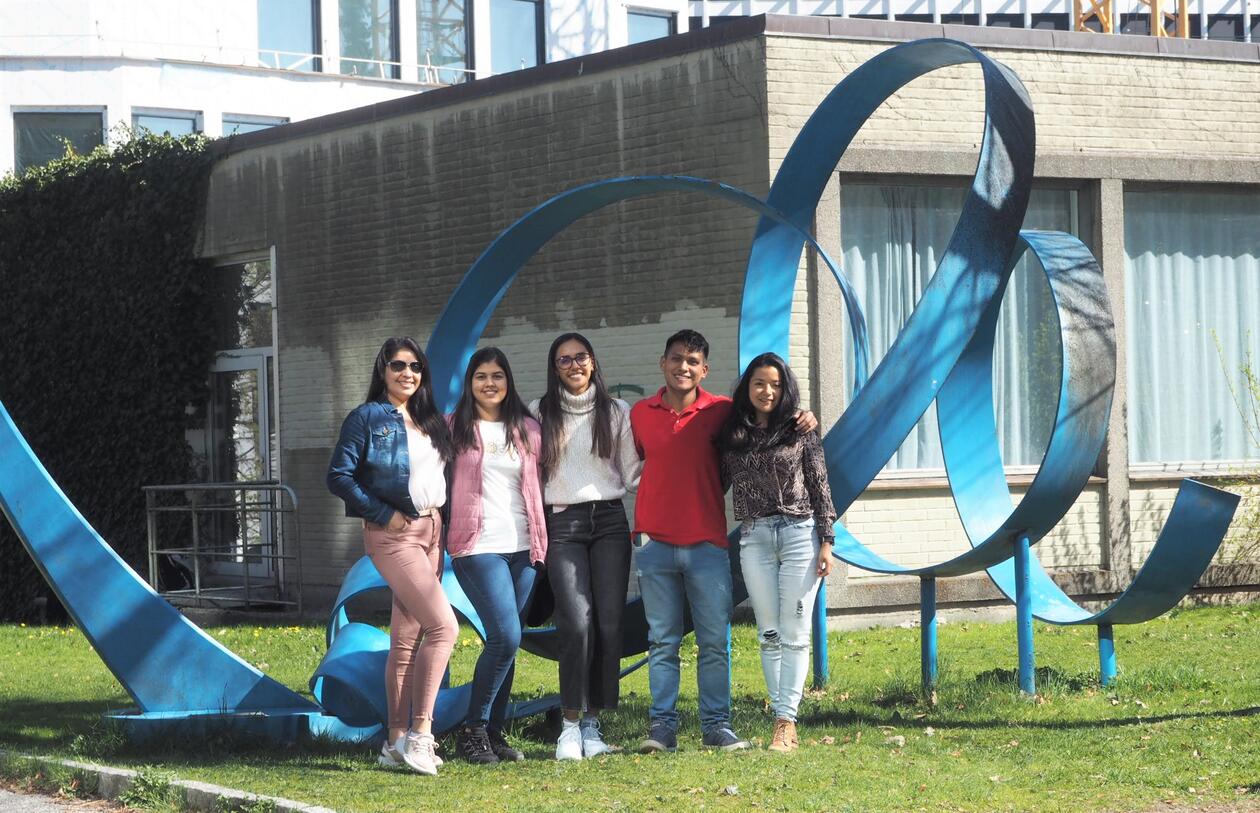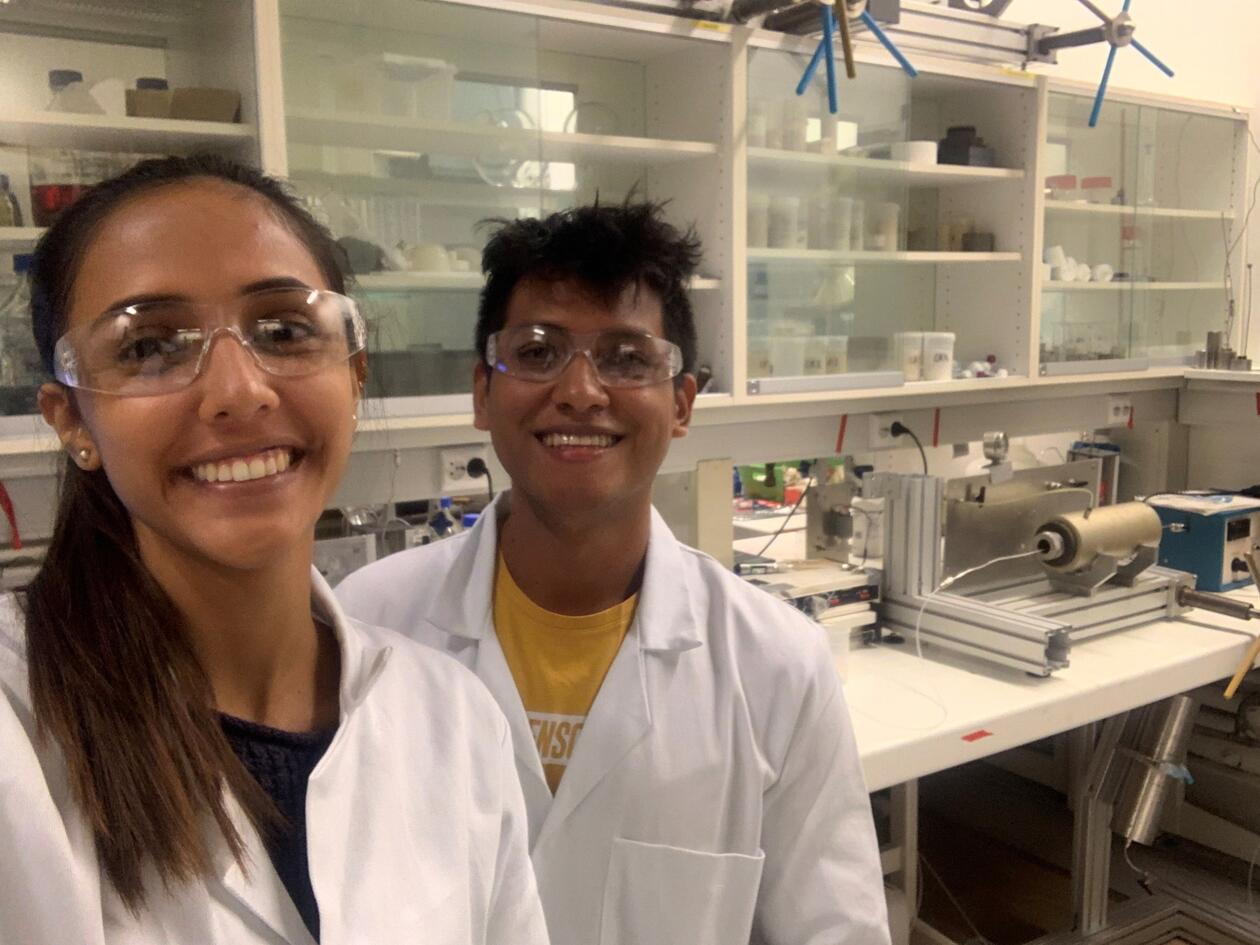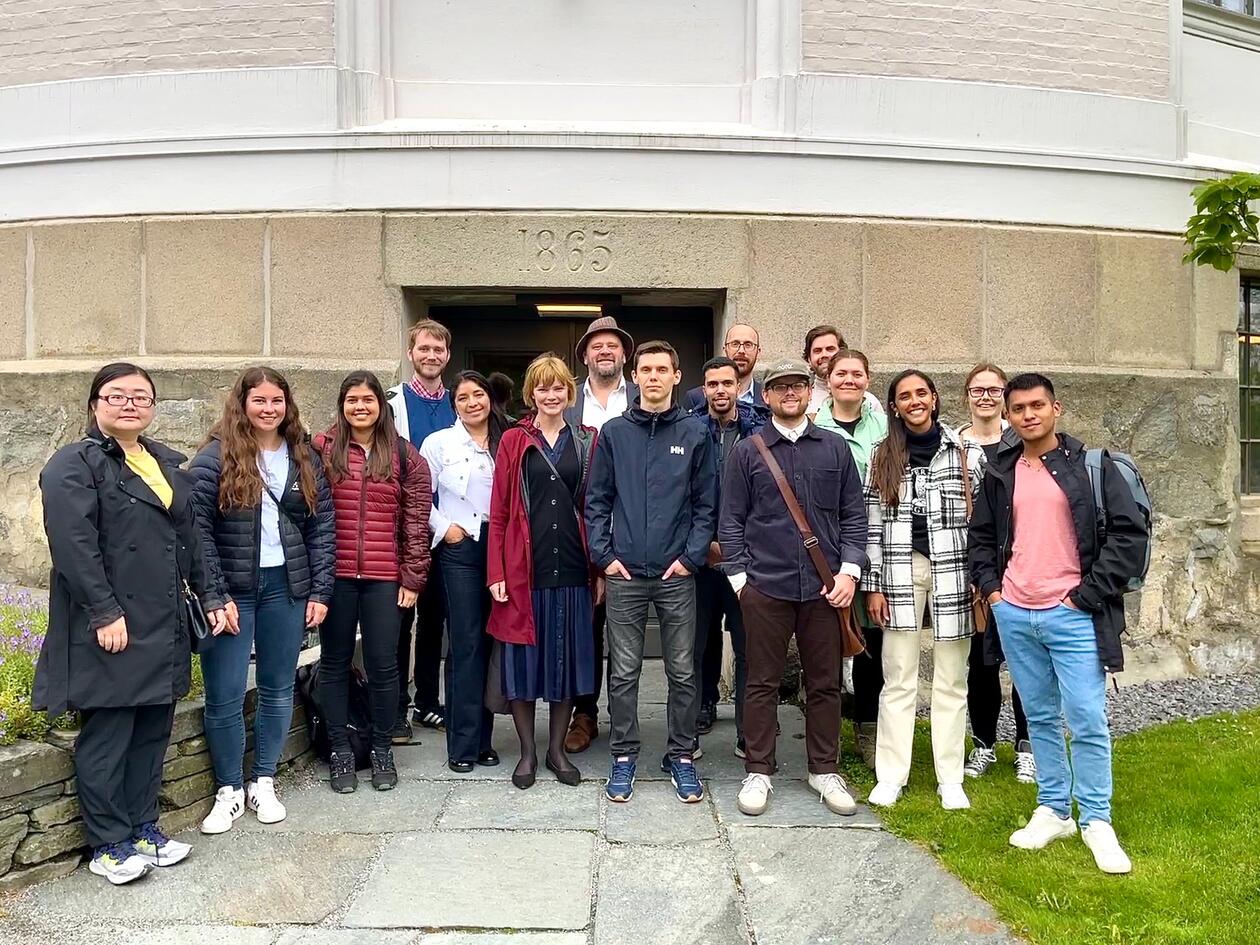Guest visitors from Ecuador and Colombia
Through the NORHED II-project CO2-EOR for CCUS in Colombia and Ecuador: Norwegian energy initiative, the Department of Physics and Technology will be receiving guest visitors from Ecuador and Colombia onward.
Main content
(this article contains excerpts from a previous article on the NORHED-programme)
NORHED II
NORHED is Norway’s national flagship programme on higher education and research for development. The aim of the NORHED-programme is to strengthen the capacity of higher education institutions in the global south to produce higher-quality graduates, more research, higher quality research, and more inclusive higher education. The programme is based on a collaborative partnership model between higher education institutions in Norway and the global south.
NOK 250 million were awarded to 13 University of Bergen (UiB) projects, in which one of them is “CO2-EOR for CCUS in Colombia and Ecuador- Norwegian energy initiative," coordinated by the Department of Physics and Technology (IFT).
- The project focuses on educating the workforce needed to contribute to the ongoing shift in the energy sector. This semester we have four aspiring energy engineers from Colombia and Ecuador as guest students, and during the project's duration we will have many more, says researcher and project coordinator Bergit Brattekås from IFT.
- Enriching studies
Maria Camila Benjumea and Edgar Frank Viveros Acosta are two of the guest visitors who came to Bergen through the NORHED II-project. They are both from Colombia and are staying in Bergen for four months. Both were welcomed by the research group Reservoir Physics – Energy Technology and CO2 Storage (CCUS) at IFT, receiving their own desks and partaking in both social and research activities offered by the department.
- My studies at IFT were very enriching. I took some courses, which helped me strengthen basic and more specific concepts in my area of interest and did experimental practices in the laboratory that helped me better prepare myself to use the set-up for research. In general, the experience at IFT assists you in your studies, says Benjumea.
Under the assistance and supervision of the research group, Benjumea is conducting research for her master's thesis on "CO2-Foams for EOR potentiated with nanotechnology," while Viveros Acosta is focusing on "Pore-scale investigation of hydrogen storage in porous media." University of Bergen gives the students access to equipment that enables them to conduct experiments that they are otherwise unable to perform back in Colombia.
- Now I have more theoretical and practical tools to continue delving into the topics of interest for my master thesis. The research group received us very well, they integrated us into their projects, events, meetings, and dynamics, Benjumea adds.
- I really enjoyed my time in Bergen. I enjoyed the tranquility, security, and nature that this beautiful city offers. I think here I learned to also enjoy the cold, which is not very common in my city. I am also glad to have made some friends from Norway and from different countries.
CO2-EOR for CCUS in Colombia and Ecuador: Norwegian energy initiative
The project
The Paris agreement and UN sustainability goals can only be achieved by permanently storing CO2 in geological formations. Significant global efforts are necessary to accelerate widespread implementation of CO2 storage, which has been restricted by the high cost: most importantly because it has not been resolved how and by whom the costs will be covered. A scenario where taxpayers or end-users pay the bill may be applicable in the western, well-developed world but is unlikely to work in most parts of the world; especially not in developing countries where access to affordable energy is a concern and fossil fuel will continue to provide essential energy during the next decades.
By utilizing anthropogenic CO2 for enhanced oil recovery (EOR) with simultaneous CO2 storage, the carbon footprint in oil production is reduced. CO2-EOR is currently the only process that may store sufficient CO2 volumes to mitigate climate change while generating a revenue for the industry; a critical criterium for widespread implementation of Carbon Capture, Utilization and Storage (CCUS). We present a North-South-South initiative, where knowledge gained in Norwegian CCUS lab to field research (University of Bergen) is transferred to higher educational institutions in Colombia (Universidad Nacional de Colombia) and Ecuador (The Escuela Superior Politecnica del Litoral (ESPOL)).
The main objective of the collaboration is to educate the next generation of petroleum engineers: energy engineers, who will have the entire value chain of CCUS integrated in their education. The 6-year project will enable students from three countries to participate in active CCUS research, and establish long-term, international scientific networks. The new generation of energy engineers will be better qualified to apply sustainable solutions and contribute to evidence-based development of energy in Latin America; where the formation of a strong regional collaboration also facilitates future industry-academia collaborations south-south.
Project’s particular importance
Energy is an essential part of sustainable development. Global energy strategies need to reflect the current climate and societal challenges. We need to provide cleaner energy for future global prosperity, improve the standard of living in developing countries and reach the UN SDG-goals of no poverty and zero hunger. Because we need to take climate action, the energy we consume must be cleaner, and access to energy is a goal in itself. The global energy challenge we are facing is tremendous; we need more energy, cleaner energy and energy security, all at the same time. In developing countries access to affordable energy is a concern and fossil fuels, in particular oil and gas, will continue to provide essential energy during the energy transition in the next decades. Combining permanent CO2 storage with oil recovery in CCUS; where the utilization of anthropogenic CO2 for oil recovery also reduces the carbon footprint of fossil fuels; is an important part of the available technology portfolio to reduce emissions while contributing to timely up-scaling of CO2 storage globally.
Project goals
- The first main objective of the collaboration is to educate the next generation of petroleum engineers: energy engineers, who will have the entire value chain of CCUS integrated in their education.
- The second main objective is to use the knowledge and competence at the University of Bergen to guide CCUS research in Colombia and Ecuador, where the overall goal is to store CO2 during oil production, minimizing the carbon footprint of fossil-based energy. Oil recovery on the Norwegian Continental Shelf (NCS) is cleaner and significantly more efficient than the world average. In contrast, primary recovery is still responsible for the main oil production in Ecuador and Colombia, providing much lower recovery factors and production is currently decreasing due to declining reserves in existing oil fields. During the energy transition, the alternatives for meeting the energy demand within national oil production are either exploiting new zones, such as the Yasuni National Park in Ecuador, which was declared as a biosphere reserve by UNESCO in 1989 or implementing EOR. CO2-EOR with combined CO2-storage (CCUS), could be the key to maintain oil-production while minimizing the carbon footprint in South America.
The Reservoir Physics Research Group at the University of Bergen has expertise within experimental EOR research, focusing on CO2-EOR with combined CO2 storage. The research laboratories at UiB comprise quality equipment for visiting students to perform state-of-the-art pore to core investigations at relevant reservoir pressures and temperatures. The research group at UiB has lately developed a lab-to-field upscaling procedure and are currently in charge of a CO2-foam field pilot in Texas, USA, demonstrating increased CO2 storage with improved revenues relative to conventional CO2 EOR. This experience will also be highly beneficial to South American countries seeking to employ CO2 storage on the field scale, where technology transfer to higher educational institutions in Ecuador and Colombia is a first step.
- The third main objective is to enhance the regional south-south collaboration between Ecuador and Colombia within sustainable energy; especially strengthening the bond between The Faculty of Mines at UNal (Colombia) and the Geosciences Faculty at ESPOL, mutually beneficial for the partners, and for technology development and implementation in the region.
Relevant SDGs in project
- SDG 4: provide quality education; especially relevant to targets: 4.4, 4.5 and 4.7.
- SDG 7: Affordable and clean energy, with especially relevant targets: 7.A and 7.B.
- SDG 13: Climate action, highly relevant to targets 13.3 and 13.A.
- SDG 17: Partnership for the goals, with two especially relevant targets: 17.6 and 17.7.
Partner institutions
- Universidad Nacional de Colombia
- Escuela Superior Politecnica del Litoral
- University of Bergen





